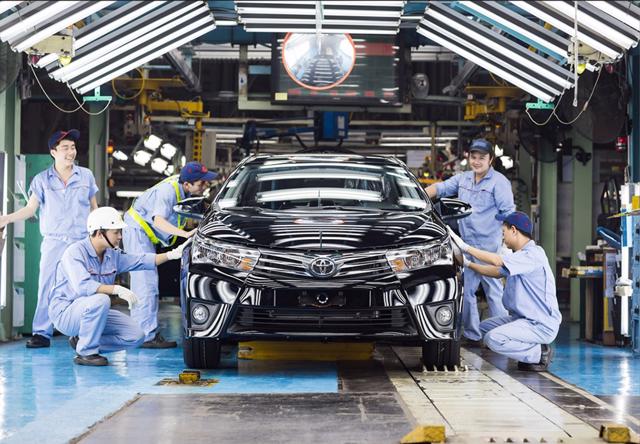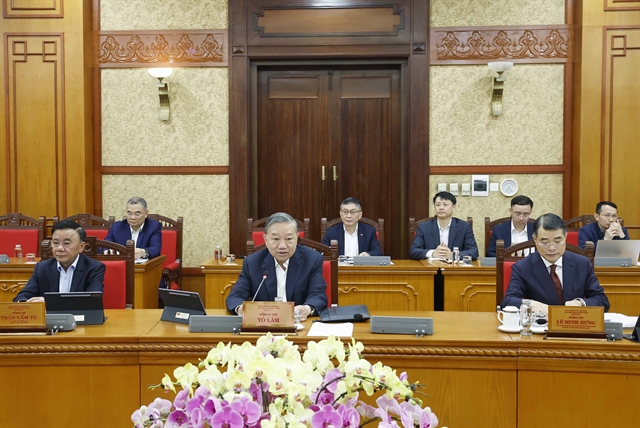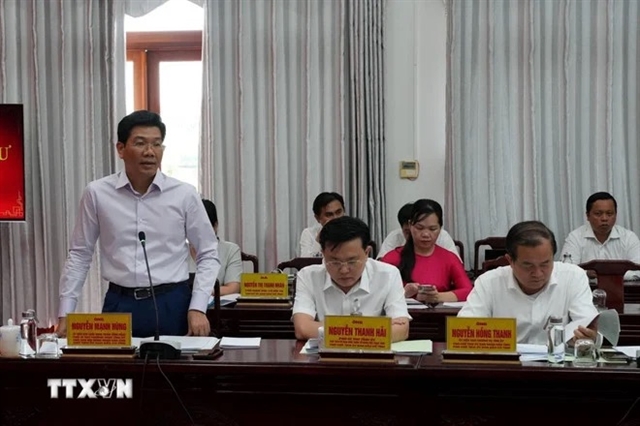 Economy
Economy

 |
| Workers at a car assembly workshop of Toyota Vietnam in Vĩnh Phúc Province. -—Photo courtesy of vnecomy.vn |
HÀ NỘI — Việt Nam’s automobile market seems to be on the way to recovery, particularly for domestically produced and assembled cars, according to industry insiders.
Government policies, such as the reduction in registration fees, are expected to further stimulate this recovery which saw the output of domestically produced cars increase slightly in April 2024 compared to March 2024.
The reduction in registration fees, expected to be implemented in July, is anticipated to be more significant this time due to the market's recent downturn and the gradual release of vehicle inventories.
A report from the General Statistics Office indicates that in April 2024, the output of domestically produced and assembled cars in Việt Nam reached an estimated 25,700 vehicles, with the majority being passenger cars with less than nine seats. This represents a slight increase of nearly five per cent compared to the output in March 2024, which stood at 24,500 vehicles. However, it is important to note that despite this month-on-month increase, overall output still decreased by 12.5 per cent compared to the same period in 2023.
The report suggests that in the first four months of 2024 it looks like the market is recovering in terms of automobile output production, new assemblies and automobile consumption. This shows that the industry is gradually recovering from previous declines, albeit not yet reaching the levels seen in 2023. The positive momentum in these areas suggests a potential turnaround and provides a hopeful outlook for the industry's future performance.
Prime Minister Phạm Minh Chính's directive and the forthcoming reduction in registration fees for domestically produced and assembled cars, thought to be coming in July, is being welcomed by industry experts. This measure, expected to be a 50 per cent reduction, could have a more significant impact than previous implementations due to the current state of the market.
The timing appears strategic, as the market is showing signs of recovery after hitting a low point. In addition, the gradual release of inventory for vehicles from 2022 and 2023, along with attractive incentive programmes offered by manufacturers and distributors, is contributing to a more positive outlook.
The surge in sales witnessed in March 2024, with many models experiencing substantial increases compared to the previous month, has further bolstered confidence within the auto industry. By implementing the registration fee reduction policy early, the Government aims to alleviate pressure on car manufacturers and dealers in the latter half of 2024.
Car manufacturers, while cautiously optimistic, are still monitoring market developments closely, especially considering the market's collapse a year ago. However, some manufacturers are already making strategic decisions in terms of new models such as Toyota Vietnam, for example which has launched the upgraded Corolla Cross 2024 model, aiming to regain its position in the market.
Honda Vietnam is focusing on key car lines like sedans and SUVs, with models such as the Honda City, CR-V, HR-V and Civic performing well. They are also promoting the clearance of the 2023 Honda CR-V models and planning to introduce electrified vehicles by 2025.
Việt Nam’s electric car maker, VinFast, has been experiencing impressive growth since 2022. In the first quarter of 2024, VinFast delivered a significant number of electric cars, leading to a substantial increase in revenue and market share, surpassing Hyundai to become Việt Nam's largest automobile manufacturer.
 |
| A model of VinFast's VF5 electric car.- Photo of VinFast |
According to insiders, these developments indicate a positive trajectory for the Vietnamese automobile market, driven by both government policies and strategic initiatives from manufacturers. VNS




